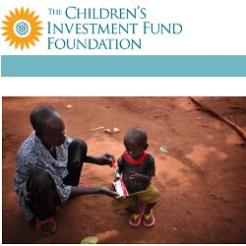The Children’s Investment Fund Foundation has pledged to invest £517m over the next seven years in projects to reduce the incidence of under-nutrition of children worldwide.
The donation is thought to be the biggest investment in under-nutrition ever made by a private foundation and was announced at a ‘Nutrition for Growth – beating hunger through business and science’ meeting attended by governments, private companies, scientists and civil society organisations in London on Saturday.
In total, £2.7bn was committed to the cause by various donors at the meeting, including £655m from the UK government.
The Children's Investment Fund Foundation (Ciff), which is the philanthropic foundation set up by hedge fund boss Christopher Cooper-Hohn and his wife Jamie Cooper-Hohn, has been steadily increasing its charitable spending over recent years despite its income from the TCI hedge fund falling sharply.
In the most recent constituent review of the biggest 100 charities by income, the Charity 100 Index, published by Charity Finance, Ciff had fallen from 14th place to 95th, as its average income for the last three years dropped from just under £200m to £52m. Four years earlier, it had been £499.3m.
However, the Foundation still boasts an expendable endowment worth £2.1bn. The Foundation announced in its latest annual report that it intends to maintain the value of the endowment so in the longer-term it can spend at least £100m each year on charitable activities.
In the year to August 2012, Ciff committed new funds of £55.3m to charitable activities – 61 per cent more than the previous year. The Foundation’s total lifetime charitable expenditure is now more than £220m.
Nutrition is one of Ciff’s five strategic priority areas – the others are neo-natal mortality, de-worming, early learning, and prevention of mother-to-child transmission of HIV/Aids.
Underinvestment in nutrition
In 2011, nutrition represented just 0.4 per cent of total overseas development funding, despite evidence showing that in low and middle-income countries, a quarter of under-fives are stunted (too short for their age because of malnutrition). Some 19 million children globally are severely wasted (too thin for their age), and more than three million children die each year because of insufficient nourishment.
Under-nutrition contributes to 35 per cent of child deaths globally, and research shows that the economic output of developing countries is severely diminished because generations of children grow up without getting the nutrition they need to develop their physical and intellectual capabilities.
The Nutrition for Growth commitments will fund the scaling up of simple, cost-effective community interventions focused on nutrition, such as breastfeeding, vitamin supplements and hand-washing projects.
Jamie Cooper-Hohn told the meeting that the commitments outlined there represented an “historic shift” as nutrition “takes its place at the heart of the health, education and economic development agendas”.
“The investments announced today will transform the lives of millions of children as well as the economic growth and prosperity of nations,” she said.










